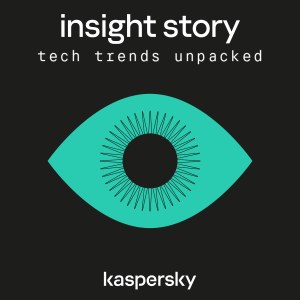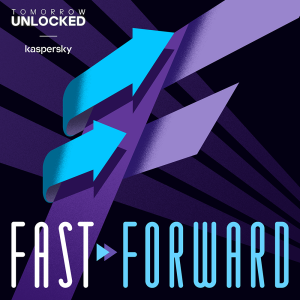In principle, data mesh architecture should liberate teams to build their systems and gather data in a distributed way, without having to explicitly coordinate. Data is the thing that can and should decouple teams, but proper implementation has its challenges.
In this episode, Kris talks to Florian Albrecht (Solution Architect, Hermes Germany) about Galapagos, an open-source DevOps software tool for Apache Kafka® that Albrecht created with his team at Hermes, a German parcel delivery company.
After Hermes chose Kafka to implement company-wide event-driven architecture, Albrecht’s team created rules and guidelines on how to use and really make the most out of Kafka. But the hands-off approach wasn’t leading to greater independence, so Albrecht’s team tried something different to documentation— they encoded the rules as software.
This method pushed the teams to stop thinking in terms of data and to start thinking in terms of events. Previously, applications copied data from one point to another, with slight changes each time. In the end, teams with conflicting data were left asking when the data changed and why, with a real impact on customers who might be left wondering when their parcel was redirected and how. Every application would then have to be checked to find out when exactly the data was changed. Event architecture terminates this cycle.
Events are immutable and changes are registered as new domain-specific events. Packaged together as event envelopes, they can be safely copied to other applications, and can provide significant insights. No need to check each application to find out when manually entered or imported data was changed—the complete history exists in the event envelope. More importantly, no more time-consuming collaborations where teams help each other to interpret the data.
Using Galapagos helped the teams at Hermes to switch their thought process from raw data to event-driven. Galapagos also empowers business teams to take charge of their own data needs by providing a protective buffer. When specific teams, providers of data or events, want to change something, Galapagos enforces a method which will not kill the production applications already reading the data. Teams can add new fields which existing applications can ignore, but a previously required field that an application could be relying on won’t be changeable.
Business partners using Galapagos found they were better prepared to give answers to their developer colleagues, allowing different parts of the business to communicate in ways they hadn’t before. Through Galapagos, Hermes saw better success decoupling teams.
EPISODE LINKS
- A Guide to Data Mesh
- Practical Data Mesh ebook
- Galapagos GitHub
- Florian Albrecht GitHub
- Watch the video
- Join the Confluent Community
- Learn more with Kafka tutorials, resources, and guides at Confluent Developer
- Live demo: Intro to Event-Driven Microservices with Confluent
- Use PODCAST100 to get $100 of free Confluent Cloud usage (details)
More Episodes
Confluent Platform 5.3 | What's New in This Release
 2019-07-31
2019-07-31
How to Convert Python Batch Jobs into Kafka Streams Applications with Rishi Dhanaraj
 2019-07-29
2019-07-29
Ask Confluent #14: In Control of Kafka with Dan Norwood
 2019-07-22
2019-07-22
Kafka in Action with Dylan Scott
 2019-07-15
2019-07-15
Change Data Capture with Debezium ft. Gunnar Morling
 2019-07-10
2019-07-10
Distributed Systems Engineering with Apache Kafka ft. Jason Gustafson
 2019-07-02
2019-07-02
Apache Kafka 2.3 | What's New in This Release + Updates and KIPs
 2019-06-25
2019-06-25
Rolling Kafka Upgrades and Confluent Cloud ft. Gwen Shapira
 2019-06-25
2019-06-25
Deploying Confluent Platform, from Zero to Hero ft. Mitch Henderson
 2019-06-18
2019-06-18
Why Kafka Connect? ft. Robin Moffatt
 2019-06-12
2019-06-12
Schema Registry Made Simple by Confluent Cloud ft. Magesh Nandakumar
 2019-06-03
2019-06-03
Why is Stream Processing Hard? ft. Michael Drogalis
 2019-05-29
2019-05-29
Testing Kafka Streams Applications with Viktor Gamov
 2019-05-20
2019-05-20
Chris Riccomini on the History of Apache Kafka and Stream Processing
 2019-05-16
2019-05-16
Ask Confluent #13: Machine Learning with Kai Waehner
 2019-05-08
2019-05-08
Diving into Exactly Once Semantics with Guozhang Wang
 2019-04-22
2019-04-22
Ask Confluent #12: In Search of the Lost Offsets
 2019-04-17
2019-04-17
Ben Stopford on Microservices and Event Streaming
 2019-04-08
2019-04-08
Magnus Edenhill on librdkafka 1.0
 2019-04-03
2019-04-03
Ask Confluent #11: More Services, More Metrics, More Fun
 2019-03-26
2019-03-26
Create your
podcast in
minutes
- Full-featured podcast site
- Unlimited storage and bandwidth
- Comprehensive podcast stats
- Distribute to Apple Podcasts, Spotify, and more
- Make money with your podcast
It is Free
You may also like

Insight Story: Tech Trends Unpacked


Zero-Shot


Fast Forward by Tomorrow Unlocked: Tech past, tech future


Lex Fridman Podcast


Elliot in the Morning


- Privacy Policy
- Cookie Policy
- Terms of Use
- Consent Preferences
- Copyright © 2015-2024 Podbean.com



 iOS
iOS Android
Android